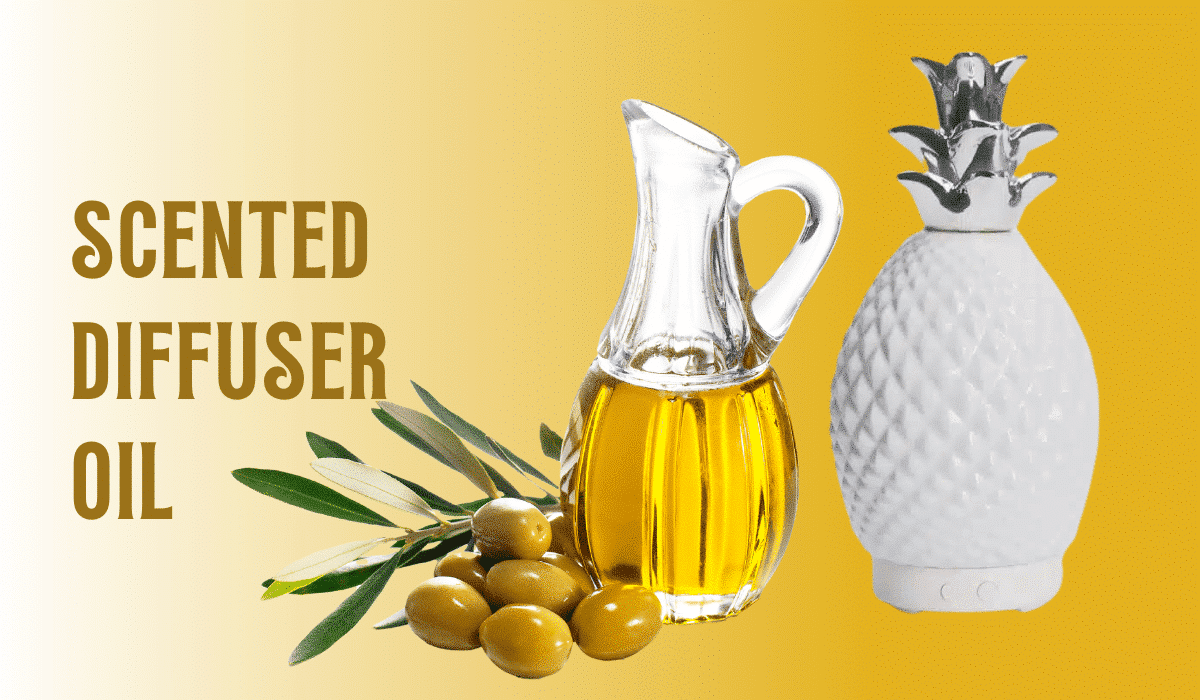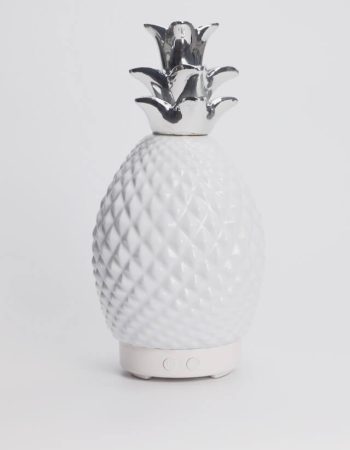
Scented Diffuser Oil is a specially formulated oil used in diffusers to disperse pleasant aromas into the air. It works by breaking down the oil into fine particles, which are then released as a fragrant mist. This oil is important for enhancing mood, creating a relaxing environment, and improving air quality.
Introduction to Scented Diffuser Oil
Scented diffuser oil is a versatile product designed to enhance the ambiance of any space with its delightful fragrances. It consists of a concentrated blend of essential oils or synthetic fragrances mixed with a carrier liquid, typically alcohol or a light oil base. The purpose of scented diffuser oils is to disperse pleasing scents evenly into the air over an extended period, creating a comforting or invigorating atmosphere depending on the fragrance chosen. Apolleum offers the best quality diffusers.
Types of Scented Diffuser Oils
When it comes to scented diffuser oils, there are several types available, each offering unique benefits and characteristics tailored to different preferences and needs.
Essential Oil-Based Diffuser Oils
Essential oil-based diffuser oils are derived from natural plant extracts, capturing the essence and aromatic properties of various plants, flowers, fruits, and herbs. These oils are prized for their therapeutic benefits and are often used in aromatherapy to promote physical and emotional well-being. Popular essential oils used in diffuser oils include lavender, eucalyptus, peppermint, lemon, and tea tree. They are known for their natural fragrance, which can vary widely depending on the plant source and extraction method.
Synthetic Fragrance Oils
Synthetic fragrance oils are formulated in a laboratory to mimic specific scents found in nature or to create entirely new fragrances. Unlike essential oils, which are extracted from plants, synthetic fragrance oils are composed of artificial aromatic compounds. They offer a wide range of scent options that may not be available through natural sources and are often more affordable than essential oils. Common synthetic fragrance oils include vanilla, apple blossom, ocean breeze, and sandalwood. These oils provide consistent and long-lasting fragrance profiles, making them popular choices for scented diffuser oils.
Blends and Custom Options
Blends of essential oils and synthetic fragrance oils offer the best of both worlds, combining the therapeutic benefits of natural extracts with the versatility of synthetic fragrances. Blends are often created to achieve specific scent combinations or to enhance the overall fragrance experience. Some manufacturers also offer custom options where customers can create personalized blends tailored to their preferences. This customization allows individuals to experiment with different scents and create unique aromas that reflect their personality or the ambiance they wish to create in their living or workspaces.
Choosing the Right Type for Your Needs
When selecting scented diffuser oils, consider factors such as personal preferences, desired therapeutic benefits, and the intended use of the fragrance. Whether you prefer the purity of essential oils, the variety of synthetic fragrances, or the creativity of blended options, there is a scented diffuser oil available to suit every taste and requirement.
Benefits of Using Scented Diffuser Oils
Scented diffuser oils offer more than just pleasant aromas; they provide various benefits that can enhance well-being and transform your living or work environment into a more enjoyable space.
Aromatherapy Benefits
One of the primary benefits of using scented diffuser oils is their ability to harness the principles of aromatherapy. Aromatherapy is a holistic healing treatment that uses natural plant extracts (essential oils) to promote health and well-being. When essential oils are dispersed into the air via diffusers, their aromatic molecules are inhaled and can have a profound impact on the body and mind.
Calming and Relaxing: Essential oils such as lavender, chamomile, and ylang-ylang are known for their calming properties, helping to reduce stress, anxiety, and promote relaxation.
Energizing: Citrus oils like lemon and orange can uplift the mood, increase alertness, and combat feelings of fatigue, making them ideal for enhancing focus and productivity.
Balancing: Certain essential oils, such as peppermint or eucalyptus, have balancing effects on both the mind and body, promoting clarity of thought and physical well-being.
Mood Enhancement
The sense of smell is closely linked to emotions and memory. Scented diffuser oils can evoke positive emotions and enhance mood by filling a space with pleasant and comforting fragrances. Whether you prefer floral scents for a serene ambiance, woody scents for a cozy feel, or fresh citrus scents for an invigorating atmosphere, the right fragrance can instantly uplift your spirits and create a more enjoyable environment.
Stress Relief
In today’s fast-paced world, stress is a common issue that affects overall well-being. Scented diffuser oils can be a natural and effective way to alleviate stress and promote relaxation. The calming effects of certain essential oils can help reduce cortisol levels (the stress hormone) in the body, leading to a sense of peace and tranquility. Whether used at home after a long day or in a workplace to create a more relaxed atmosphere, diffuser oils can provide a soothing retreat from daily stressors.
How Scented Diffuser Oils Work
Understanding how scented diffuser oils work involves exploring their mechanisms of dispersion, longevity, and potency, all of which contribute to their effectiveness in enhancing ambiance with delightful fragrances.
Diffuser Mechanisms
Scented diffuser oils rely on various mechanisms to disperse their fragrances into the air, ensuring even distribution throughout a room or space.
Reed Diffusers: These diffusers consist of a glass bottle filled with scented oil and reed sticks. The reeds absorb the oil and release the fragrance into the air through capillary action. Reed diffusers are passive and require no electricity, relying solely on the natural absorption and evaporation process.
Ultrasonic Diffusers: Ultrasonic diffusers use ultrasonic vibrations to create a fine mist of water and essential oils, which is released into the air as a gentle, aromatic mist. This method not only disperses fragrance but also adds moisture to the air, making it beneficial in dry climates or during winter months.
Electric Diffusers: Electric diffusers operate by heating scented oils to release their fragrance into the air. These diffusers often come with adjustable settings for fragrance intensity and may include additional features like timers or color-changing lights for ambiance.
Longevity and Potency
The longevity and potency of scented diffuser oils depend on several factors, including the type of oils used, the diffusion method, and environmental conditions.
Type of Oils: Essential oils generally evaporate more slowly than synthetic fragrance oils, resulting in a longer-lasting scent. Blends of essential oils and synthetic fragrances can offer a balance between longevity and variety in scent options.
Diffusion Method: Different diffuser mechanisms impact how quickly and evenly oils are dispersed into the air. Ultrasonic diffusers may provide continuous fragrance over several hours, while reed diffusers release scent gradually over weeks to months.
Environmental Factors: Room temperature, humidity levels, and air circulation affect the diffusion and longevity of scented oils. Warmer temperatures and higher humidity can accelerate evaporation, while drafts or air vents may disperse fragrance more quickly.
Choosing the Right Diffuser and Oil Combination
To maximize the effectiveness of scented diffuser oils:
- Select a diffuser that suits your preferences for fragrance intensity, ease of use, and maintenance.
- Experiment with different types of oils and blends to find scents that align with your desired ambiance and mood.
- Follow manufacturer guidelines for optimal diffuser operation and maintenance to ensure consistent fragrance performance.
Popular Fragrances and Their Effects
Exploring popular fragrances used in scented diffuser oils reveals their unique effects on mood and ambiance, offering a range of benefits from relaxation to energy enhancement.
Lavender for Relaxation
Lavender is widely celebrated for its calming and soothing properties, making it a popular choice for promoting relaxation and sleep quality. When diffused through a scented oil, lavender fragrance can help reduce stress, anxiety, and tension. Its gentle floral aroma creates a serene atmosphere that is conducive to unwinding after a long day or preparing for a restful night’s sleep. Lavender is also known to have mild sedative effects, making it ideal for use in bedrooms, meditation spaces, or anywhere you seek tranquility and peace.
Citrus Scents for Energy
Citrus scents, such as lemon, orange, grapefruit, and bergamot, are renowned for their invigorating and energizing effects. These refreshing fragrances stimulate the senses, increase alertness, and uplift mood. Citrus oils are often used to combat fatigue, boost mental clarity, and promote productivity. Whether diffused in a workspace, kitchen, or any area where a burst of freshness is desired, citrus scents can create a vibrant and lively ambiance that revitalizes both mind and body.
Floral Scents for Tranquility
Floral scents like jasmine, rose, and ylang-ylang evoke feelings of tranquility and serenity. These delicate and romantic fragrances have a calming influence on emotions, helping to reduce anxiety and promote relaxation. Floral oils are cherished for their ability to create a peaceful ambiance, making them ideal for bedrooms, living rooms, and spa-like settings. They can enhance moments of self-care, meditation, or quiet reflection, enveloping spaces in a soft, comforting aroma that encourages a sense of well-being.
Choosing the Right Fragrance for Your Needs
When selecting scented diffuser oils based on their effects:
- Consider your specific goals, whether you’re aiming to relax, boost energy, or create a tranquil environment.
- Experiment with different fragrances to find scents that resonate with your personal preferences and enhance the ambiance of your living or workspaces.
- Blend complementary fragrances to customize your aroma experience and achieve desired effects such as relaxation with a hint of energy or tranquility with a touch of freshness.
Choosing the Right Scent for Your Space
Selecting the perfect scent for your living or work environment involves thoughtful consideration of factors such as room size, purpose, personal preferences, and seasonal variations, ensuring the fragrance enhances the ambiance effectively.
Consider Room Size and Purpose
The size and function of a room play a crucial role in determining the ideal scent:
Room Size: Larger rooms may require stronger or more diffusers to achieve desired fragrance intensity, while smaller rooms may benefit from milder scents that do not overwhelm the space.
Purpose of the Room: Consider how the room is used. For example, bedrooms often benefit from relaxing scents like lavender or chamomile, while kitchens may be enhanced by fresh citrus scents. Living areas can benefit from versatile scents like vanilla or sandalwood that create a warm and inviting atmosphere.
Personal Preferences and Seasonal Changes
Personal preferences and seasonal variations influence scent choices:
Personal Preferences: Choose fragrances that resonate with your personal tastes and preferences. Whether you prefer floral, woody, citrusy, or herbal scents, selecting a fragrance that you enjoy can enhance your overall experience in the space.
Seasonal Changes: Consider seasonal variations when selecting scents. For example, during colder months, warm and comforting fragrances like cinnamon or cedarwood may be preferred, while lighter and fresher scents such as lavender or mint are refreshing in warmer seasons.
Tips for Choosing the Right Scent
Experimentation: Test different scents in small quantities or through sample sizes before committing to larger bottles. This allows you to gauge how the fragrance interacts with the environment and your preferences.
Blend Customization: Some manufacturers offer custom blending options, allowing you to create unique combinations tailored to specific preferences or seasonal themes.
Feedback and Adjustment: Pay attention to feedback from family members, guests, or colleagues regarding scent preferences. Adjust fragrance choices based on feedback to ensure a welcoming and enjoyable environment for everyone.
Safety and Usage Tips for Scented Diffuser Oils
Using scented diffuser oils safely involves understanding dilution guidelines, ensuring pet and child safety, and maintaining diffuser equipment for optimal performance and longevity.
Dilution Guidelines
When using scented diffuser oils, especially essential oils, it’s essential to follow dilution guidelines to ensure safe and effective use:
Essential Oils: Essential oils are highly concentrated and should typically be diluted before use in diffusers. A common dilution ratio is 3-5 drops of essential oil per 100 ml of water in ultrasonic or electric diffusers. However, always refer to specific guidelines provided by the manufacturer or aromatherapy resources.
Synthetic Fragrance Oils: Synthetic fragrance oils are generally pre-diluted and can be used directly in diffusers without further dilution. However, check product labels for any specific instructions regarding usage.
Pet and Child Safety
While scented diffuser oils can enhance ambiance, it’s crucial to prioritize safety, especially around pets and children:
Pets: Some essential oils, such as tea tree oil, citrus oils, and certain floral oils, can be toxic to pets if ingested or inhaled in large quantities. Keep diffusers out of reach of pets, and ensure adequate ventilation in the room to prevent overexposure.
Children: Children may have sensitivities to certain fragrances. Choose mild or hypoallergenic scents when diffusing in areas where children spend time. Always supervise children around diffusers and keep them away from direct contact with diffuser oils.
Maintenance of Diffuser Equipment
Proper maintenance of diffuser equipment ensures optimal performance and prolongs the life of your device:
Regular Cleaning: Clean your diffuser regularly according to manufacturer instructions to prevent buildup of oils or residue. Use mild soap and water to clean the water tank and diffuser components. This prevents clogging and ensures consistent fragrance dispersion.
Changing Water and Oils: Change water and refill oils regularly to maintain fresh and effective diffusion. Stagnant water or old oils can affect the quality of fragrance and may promote bacterial growth.
Storage: When not in use, store diffuser oils and equipment in a cool, dry place away from direct sunlight. This helps preserve the integrity of the oils and extends the lifespan of the diffuser.
DIY Scented Diffuser Oil Recipes
Creating your own scented diffuser oils allows for customization, personalization, and the ability to tailor fragrances to your mood and preferences. Here are some simple recipes for beginners and tips on customizing scents based on mood.
Simple Blends for Beginners
1. Relaxing Lavender Blend
Ingredients:
- 30 drops Lavender essential oil
- 2 tbsp Fractionated coconut oil (carrier oil)
Instructions:
- Mix the lavender essential oil with fractionated coconut oil in a glass bottle.
- Stir gently to combine.
- Pour the blend into your chosen diffuser and enjoy the calming aroma.
2. Energizing Citrus Burst
Ingredients:
- 20 drops Sweet Orange essential oil
- 10 drops Lemon essential oil
- 1 tbsp Jojoba oil (carrier oil)
Instructions:
- Combine the sweet orange and lemon essential oils with jojoba oil in a glass bottle.
- Shake well to blend thoroughly.
- Transfer the mixture to your diffuser for a refreshing burst of energy.
Customizing Scents Based on Mood
Mood: Relaxation
Ingredients:
- 20 drops Lavender essential oil
- 10 drops Roman Chamomile essential oil
- 1 tbsp Almond oil (carrier oil)
Instructions:
- Mix the lavender and Roman chamomile essential oils with almond oil in a glass bottle.
- Swirl gently to combine.
- Use in your diffuser to create a peaceful and soothing atmosphere perfect for relaxation.
Mood: Invigoration
Ingredients:
- 15 drops Peppermint essential oil
- 10 drops Eucalyptus essential oil
- 5 drops Rosemary essential oil
- 1 tbsp Grapeseed oil (carrier oil)
Instructions:
- Blend the peppermint, eucalyptus, and rosemary essential oils with grapeseed oil in a glass container.
- Mix well by rolling the bottle between your hands.
- Add to your diffuser to promote alertness and mental clarity.
Tips for DIY Diffuser Oils
Quality Ingredients: Use high-quality essential oils and carrier oils to ensure optimal fragrance and therapeutic benefits.
Experimentation: Feel free to adjust the number of drops and types of oils to create your desired fragrance intensity and combination.
Storage: Store your DIY diffuser oil blends in a cool, dark place to preserve their potency and aroma.
Caring for Your Scented Diffuser
Proper care and maintenance of your scented diffuser are essential for prolonging its lifespan and ensuring optimal performance. Here are valuable tips on cleaning, refilling, and general maintenance.
Cleaning Tips
Regular cleaning helps prevent buildup and ensures your scented diffuser operates effectively:
Daily Wipe Down: Wipe the exterior of your diffuser daily with a soft, dry cloth to remove dust and dirt. This maintains its appearance and prevents debris from entering the diffuser.
Weekly Cleaning: Perform a more thorough cleaning at least once a week. Follow these steps:
- Unplug the Diffuser: Always unplug the diffuser before cleaning to avoid electrical hazards.
- Empty and Rinse: Empty any remaining water and oil from the reservoir. Rinse with clean water and wipe dry with a soft cloth.
- Clean with Vinegar: For stubborn residue or oil buildup, mix equal parts water and white vinegar. Use a cotton swab dipped in the solution to clean the ultrasonic plate or any small crevices inside the diffuser. Avoid using harsh chemicals that may damage the diffuser.
- Dry Thoroughly: Allow the diffuser to air dry completely before refilling it with water and oils.
Refilling and Maintenance
Maintaining your diffuser ensures consistent performance and prolongs its lifespan:
Use Filtered Water: Use filtered or distilled water to prevent mineral buildup inside the diffuser, which can affect its operation over time.
Refill Regularly: Refill the water reservoir regularly to maintain continuous operation. Avoid letting the water level drop too low, as it may damage the ultrasonic plate or affect the diffusion of oils.
Replace Oils Promptly: Change diffuser oils regularly to prevent residue buildup and ensure fresh fragrance. Empty and clean the reservoir before adding new oils to avoid mixing scents.
Check Manufacturer Guidelines: Follow specific maintenance instructions provided by the manufacturer. Some diffusers may require additional care or have specific cleaning methods recommended to maintain warranty coverage.
Tips for Longevity
Store Properly: Store your diffuser in a cool, dry place when not in use to prevent dust accumulation and prolong its lifespan.
Avoid Direct Sunlight: Keep your diffuser away from direct sunlight, as prolonged exposure can cause fading or damage to plastic components.
Replace Parts as Needed: Periodically check for worn-out parts, such as O-rings or gaskets, and replace them as necessary to prevent leaks and ensure optimal performance.
Enhancing Workspaces with Scented Diffuser Oils
Transforming your workspace with scented diffuser oils can significantly impact productivity and atmosphere, creating a conducive environment for work and well-being.
Boosting Productivity
1. Citrus Scents for Energy
Citrus essential oils like lemon, orange, and grapefruit are renowned for their invigorating properties. Diffusing these scents in your workspace can help boost energy levels, increase alertness, and stimulate creativity. The refreshing aroma of citrus oils is particularly effective during midday slumps or when facing tasks requiring focus and concentration.
2. Peppermint for Mental Clarity
Peppermint essential oil is known for its ability to enhance mental clarity and promote productivity. Its crisp, minty scent can help improve concentration, memory retention, and overall cognitive function. Diffuse peppermint oil in your workspace to stay refreshed and maintain optimal mental performance throughout the day.
Creating a Calming Atmosphere
1. Lavender for Relaxation
Lavender essential oil is celebrated for its calming and soothing properties. Diffusing lavender in your workspace can reduce stress levels, promote relaxation, and create a tranquil atmosphere conducive to concentration and mindfulness. Its gentle floral scent is ideal for promoting a sense of peace and well-being amidst a busy workday.
2. Sandalwood for Focus
Sandalwood essential oil is revered for its grounding and centering effects. Its woody aroma helps alleviate anxiety, enhance focus, and encourage a meditative state of mind. Diffusing sandalwood oil in your workspace fosters a serene environment, allowing for deeper concentration and increased productivity.
Tips for Using Scented Diffuser Oils in Workspaces
Moderation: Start with a few drops of essential oil and adjust based on personal preference and workspace size to avoid overwhelming the environment.
Consistency: Maintain a consistent schedule for diffusing oils to establish a familiar and comforting ambiance in your workspace.
Consider Co-Workers: Be mindful of co-workers’ sensitivities and preferences when selecting scents. Opt for mild, universally appealing fragrances to promote a harmonious work environment.
Using Scented Diffuser Oils in Different Seasons
Adapting your use of scented diffuser oils according to the seasons can enhance your home ambiance, providing warmth in winter and freshness in summer.
Winter Warmth
1. Spicy and Woody Scents
During the colder months, opt for scents that evoke warmth and coziness:
- Cinnamon: Known for its comforting and spicy aroma, cinnamon essential oil creates a cozy atmosphere reminiscent of holiday festivities.
- Cedarwood: With its rich, woody scent, cedarwood essential oil adds a touch of warmth and grounding to your home during winter.
- Vanilla: Sweet and soothing, vanilla essential oil imparts a sense of comfort and relaxation, perfect for cold winter evenings.
2. Fir and Pine
Bring the outdoors indoors with fragrances inspired by winter forests:
- Fir: The fresh, crisp scent of fir essential oil brings to mind pine trees and snowy landscapes, offering a refreshing yet comforting ambiance.
- Pine: Pine essential oil is invigorating and cleansing, ideal for purifying the air and creating a revitalizing atmosphere during winter.
Summer Freshness
1. Citrus and Herbal Scents
In summer, embrace light and refreshing fragrances that uplift and energize:
- Lemon: Bright and zesty, lemon essential oil revitalizes the senses and promotes a cheerful atmosphere in your home.
- Peppermint: Cool and invigorating, peppermint essential oil provides a refreshing burst of energy, perfect for hot summer days.
- Lavender: While traditionally known for relaxation, lavender essential oil also offers a fresh and floral scent that can be uplifting in summer, promoting a sense of calm amidst the heat.
2. Floral and Fruity Blends
Create a summer garden indoors with delightful floral and fruity aromas:
- Rose: Delicate and romantic, rose essential oil adds a touch of elegance and freshness to your living spaces during summer.
- Citrus Blends: Combine essential oils like orange, grapefruit, and bergamot for a vibrant and uplifting blend that enhances mood and energy levels on sunny days.
Tips for Seasonal Diffuser Use
Adjust Intensity: In winter, you may prefer stronger, more comforting scents, while summer calls for lighter, more invigorating aromas.
Experiment with Blends: Mix and match different oils to create custom blends that suit your seasonal preferences and complement your home decor.
Consider Temperature: Essential oils may evaporate more quickly in warmer temperatures, requiring more frequent refills during summer months.
Conclusion
In conclusion, scented diffuser oils offer a versatile and effective way to enhance your living spaces with delightful aromas that promote relaxation, boost productivity, and create a welcoming atmosphere. Whether you’re new to aromatherapy or a seasoned enthusiast, the variety of scents and blends available cater to different preferences and needs, from calming lavender for relaxation to energizing citrus for productivity.
FAQs
What oil is best for a diffuser?
The best oil for a diffuser is typically a high-quality, pure essential oil. Popular choices include lavender for relaxation, peppermint for energy, and eucalyptus for respiratory benefits.
Is it OK to put fragrance oil in a diffuser?
Yes, it is OK to put fragrance oil in a diffuser, but it’s important to use fragrance oils that are specifically designed for diffusers to avoid damaging the device or causing health issues.
Is there a difference between diffuser oil and essential oil?
Yes, there is a difference. Essential oils are pure, natural extracts from plants, while diffuser oils can be either pure essential oils or a blend of essential oils and carrier oils or synthetic fragrance oils.
What is the best scent to put in a diffuser?
The best scent depends on your preferences and desired effects. Lavender is great for relaxation, citrus oils like lemon and orange are uplifting, and eucalyptus is excellent for clearing sinuses.
Is diffusing essential oils safe for your lungs?
Diffusing essential oils is generally safe for your lungs when done in moderation and in a well-ventilated area. However, people with respiratory conditions like asthma should use caution and consult a healthcare provider.
How many drops of oil do I put in a diffuser?
Typically, you should use 3-5 drops of essential oil per 100ml of water in your diffuser. Adjust the amount based on the strength of the oil and your personal preference.
What essential oils should not be used in a diffuser?
Essential oils like eucalyptus, rosemary, and peppermint should be used with caution around children and pets. Avoid using oils like wintergreen and camphor, which can be toxic in high concentrations.
What is the best base for diffusers?
The best base for diffusers is distilled or purified water. Some people also use a mixture of water and a small amount of alcohol to help disperse the oils more evenly.
What are the disadvantages of oil diffusers?
Disadvantages of oil diffusers include the potential for allergic reactions, the need for regular cleaning to prevent mold and bacteria buildup, and the risk of using oils that may be harmful to pets or young children.
Are oil diffusers safer than air fresheners?
Oil diffusers are generally considered safer than chemical air fresheners because they use natural essential oils instead of synthetic chemicals, which can be harmful when inhaled over time.
Why is diffuser oil so expensive?
Diffuser oil, especially pure essential oils, can be expensive due to the large amount of plant material required to produce a small amount of oil, as well as the labor-intensive extraction process.
How do I choose essential oils for my diffuser?
Choose essential oils based on your needs and preferences. Look for high-quality, pure oils from reputable brands. Consider the desired effects, such as relaxation, energy, or respiratory support.
Can you use any brand of essential oils in a diffuser?
You can use any brand of essential oils in a diffuser, but it’s best to choose high-quality, pure oils from reputable brands to ensure safety and effectiveness.
Which is better: humidifier or oil diffuser?
Humidifiers and oil diffusers serve different purposes. Humidifiers add moisture to the air, which is beneficial for dry environments, while oil diffusers disperse essential oils for aromatherapy. Choose based on your needs.
Is it safe to have a diffuser in the bedroom?
Yes, it is generally safe to have a diffuser in the bedroom. It can promote relaxation and improve sleep quality. However, ensure proper ventilation and avoid using oils that may cause allergic reactions.
How many drops of essential oil should I put in my humidifier?
If your humidifier is designed to work with essential oils, use 3-5 drops per 100ml of water. Not all humidifiers are compatible with essential oils, so check the manufacturer’s instructions.
What essential oils should you avoid with high blood pressure?
Avoid essential oils like rosemary, thyme, and sage if you have high blood pressure, as they can increase blood pressure. Consult a healthcare provider before using essential oils if you have hypertension.
What is the best oil for a homemade diffuser?
The best oil for a homemade diffuser includes essential oils like lavender, peppermint, eucalyptus, and lemon. Use a carrier oil like fractionated coconut oil to help disperse the essential oils.
Where should aroma diffusers be placed in a room?
Place aroma diffusers in a central location in the room, on a stable surface, and away from direct sunlight and heat sources. Ensure there is good airflow for optimal dispersion of the essential oils.
What oils smell best in a diffuser?
Oils that smell great in a diffuser include lavender, peppermint, eucalyptus, citrus oils (lemon, orange, grapefruit), and blends like lavender and vanilla or peppermint and eucalyptus.
Is an air purifier better than a diffuser?
An air purifier and a diffuser serve different purposes. An air purifier removes contaminants from the air, while a diffuser adds fragrance and potentially therapeutic benefits. Use both for a cleaner and more pleasant environment.
Can I put ice in my diffuser?
It’s not recommended to put ice in your diffuser. Use room temperature or cool water to avoid damaging the device.
What is the most effective type of diffuser?
Ultrasonic diffusers are considered the most effective type because they use water to disperse essential oils into a fine mist, providing consistent and long-lasting diffusion.
Can I use tap water in a diffuser?
You can use tap water in a diffuser, but distilled or purified water is recommended to prevent mineral buildup and ensure the longevity of the device.
How many drops of essential oil do you put in a diffuser?
Use 3-5 drops of essential oil per 100ml of water in a diffuser. Adjust the amount based on the strength of the oil and your personal preference.
Do you put hot or cold water in a diffuser?
Use room temperature or cold water in a diffuser. Hot water can damage the device and alter the properties of the essential oils.
Who should not use rosemary oil?
People with epilepsy, high blood pressure, or those who are pregnant should avoid using rosemary oil. Consult a healthcare provider before use if you have any health conditions.
What essential oils are good for weight loss?
Essential oils like grapefruit, lemon, peppermint, and cinnamon may support weight loss efforts by boosting metabolism, reducing cravings, and improving digestion.
What oils are best for your heart?
Oils like lavender, ylang-ylang, and frankincense are known for their heart-healthy benefits, including reducing stress, lowering blood pressure, and promoting relaxation.
What happens if you put too many drops of oil in a diffuser?
If you put too many drops of oil in a diffuser, the scent can become overpowering and potentially cause headaches or respiratory irritation. Stick to the recommended amount for safe use.
How often should I change the diffuser water?
Change the water in your diffuser daily to prevent bacteria and mold growth. Clean the diffuser regularly according to the manufacturer’s instructions.
Why can’t I smell my essential oil diffuser?
If you can’t smell your essential oil diffuser, it may be due to using too little oil, a clogged diffuser, low-quality oils, or olfactory fatigue (temporary desensitization to the scent).
Can your hair fall out because of rosemary oil?
Rosemary oil is generally safe for hair and may even promote hair growth. However, using it in high concentrations or if you have a sensitivity can cause irritation, which may lead to hair issues.
What is the problem with rosemary oil?
The problem with rosemary oil is that it can cause allergic reactions, skin irritation, and adverse effects if used by people with epilepsy, high blood pressure, or during pregnancy.
What essential oil is good for ED?
Essential oils like ylang-ylang, sandalwood, and ginger are believed to help with erectile dysfunction (ED) by promoting relaxation, reducing stress, and improving blood circulation.
What is the unhealthiest oil?
Trans fats and oils high in saturated fats, such as partially hydrogenated oils and palm oil, are considered the unhealthiest due to their negative impact on heart health.
What oil is best for weight loss?
Oils like coconut oil, olive oil, and MCT oil are considered good for weight loss due to their healthy fats, which can boost metabolism and reduce appetite.
Which oil is best for high cholesterol?
Oils like olive oil, avocado oil, and flaxseed oil are best for high cholesterol as they contain healthy monounsaturated and polyunsaturated fats that can help lower LDL (bad) cholesterol levels.
Latest Products
-
Truck Wireless Monitor K8
$130.00Original price was: $130.00.$95.00Current price is: $95.00. Add to cart -
M2 Pro Motorcycle CarPlay
$180.00Original price was: $180.00.$120.00Current price is: $120.00. Add to cart -
Car 5inch IP67 Motorcycle Carplay
$76.00Original price was: $76.00.$55.00Current price is: $55.00. Add to cart -
6.25 Inch Motorcycle DVR
$130.00Original price was: $130.00.$110.00Current price is: $110.00. Add to cart





